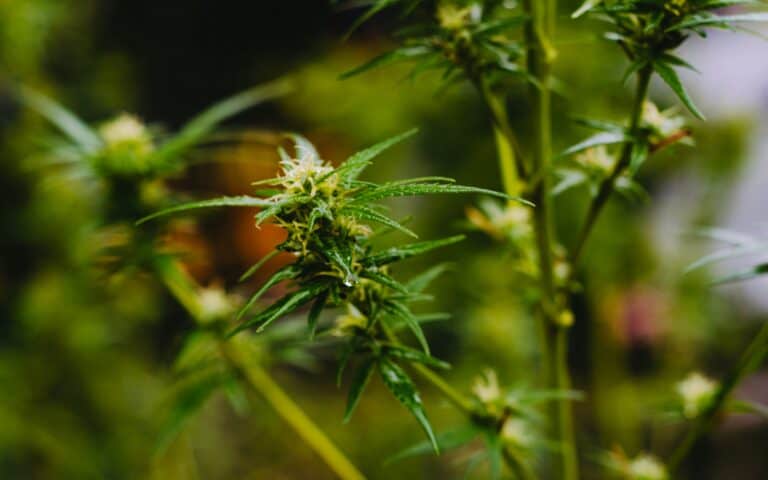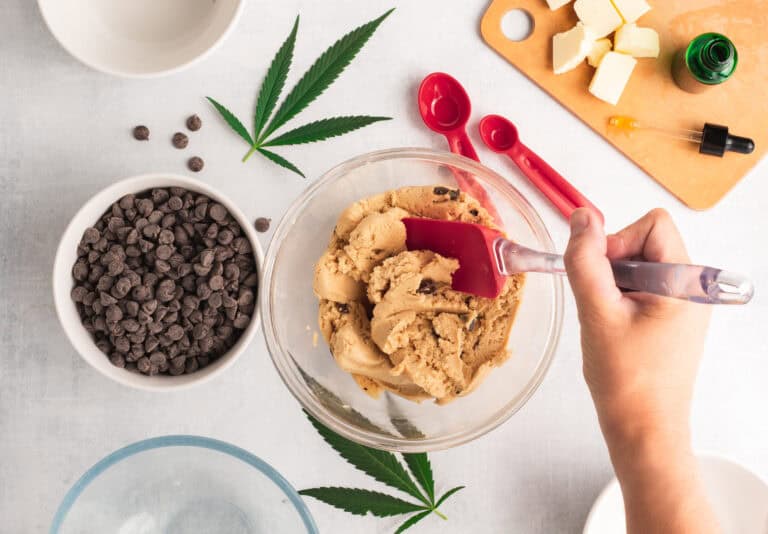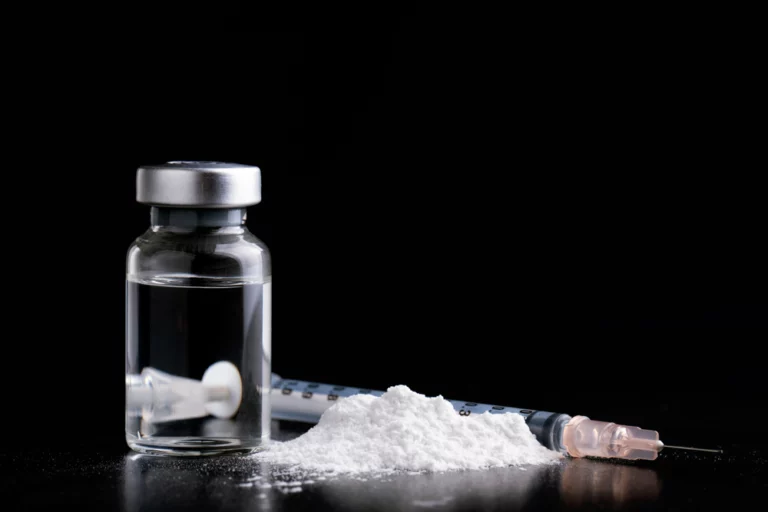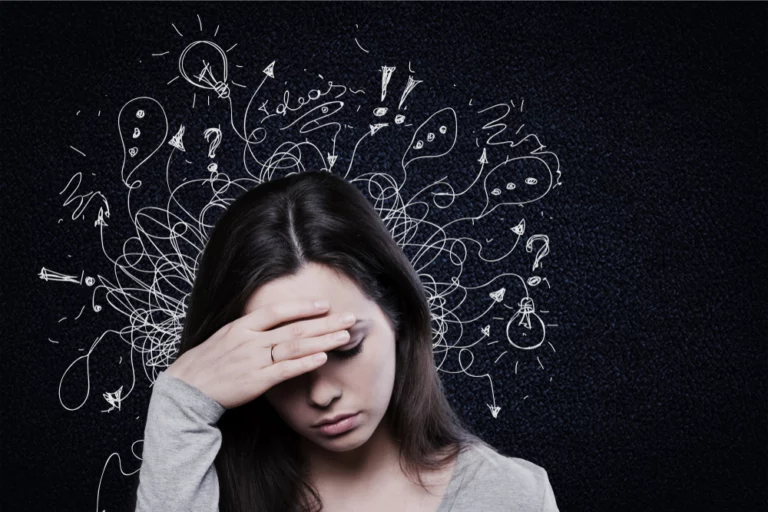As many individuals are using higher doses or more intense strains of cannabis, also known as weed, they may begin to experience some psychoactive effects. This can cause individuals to ask the question, “Is weed a psychedelic?” As the classification of weed as a psychedelic has gained traction over recent years, this is an important question to ask.
In this article, we aim to provide an answer to the question, “Is weed a psychedelic?” We will do this by gaining an understanding of what psychedelics are, the different types of classic psychedelics, what would make weed be classified as a psychedelic, and the differences between weed and other psychedelics.
What are Psychedelics?
Psychedelics, also known as hallucinogens or hallucinogenic substances, are a class of psychoactive compounds that can profoundly alter perception, mood, consciousness, and thought processes. They are typically characterized by their capacity to induce hallucinations or psychedelic effects, which are experiences of seeing, hearing, or feeling things that are not present. These substances have been used for centuries by various cultures for spiritual, therapeutic, and recreational purposes.
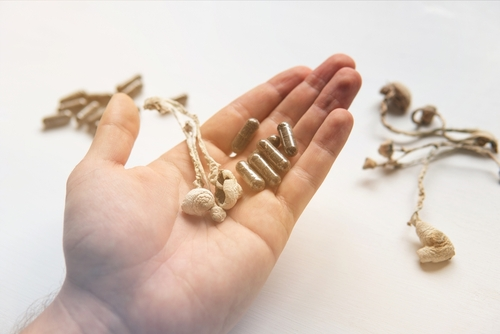
Types of Psychedelics
Psychedelics encompass many substances, including naturally occurring ones or synthetic compounds. These substances can cause many different psychoactive effects that vary highly between individuals. Before taking any psychedelics, it’s essential to know what effects each one may have. Some of the most common types of psychedelic drugs and their effects include:
- Psilocybin Mushrooms: Psilocybin mushrooms, also known as magic mushrooms or shrooms, contain the psychoactive compound psilocybin. Psilocybin induces vivid visual and auditory hallucinations, altered perception of reality, and a sense of profound connectedness with nature.
- LSD (Lysergic Acid Diethylamide): LSD, also known as acid, is a synthetic psychedelic compound that was initially created in a lab but is known for its powerful and long-lasting effects. Some of these effects include visual hallucinations, changes in perception of time, and spiritual experiences.
- DMT (Dimethyltryptamine): DMT is another naturally occurring psychedelic compound found in various plants and the human brain. DMT is known for producing intense but short trips, including visual hallucinations of otherworldly beings.
- MDMA (3,4-methylenedioxymethamphetamine): MDMA is a synthetic compound that was originally used as a pharmaceutical medication. MDMA may cause feelings of euphoria, emotional openness, and increased social skills.
Is Weed a Psychedelic?
The classification of cannabis, or weed, as a psychedelic has been debated for years. While some individuals may experience psychedelic effects, weed is not traditionally classified as a psychedelic substance. As individual experiences with weed may vary, the classification of weed as psychedelic may depend on the effects experienced.
As stated above, traditionally, weed has not been classified as a psychedelic like other substances, such as LSD or DMT. This is because of the low-level hallucinogenic effects that may occur when some individuals use weed. These effects, however, may become more pronounced with specific strains of cannabis that have higher levels of THC, or tetrahydrocannabinol. With high doses of THC, individuals may have a psychedelic experience while using weed.
Learn More: Does Weed Kill Brain Cells or Is That Old Stigma?

What Would Make Weed a Psychedelic?
While it’s still unclear whether weed is a psychedelic or not, we can look at how cannabis interacts with the brain and if it is similar to how classic psychedelics interact.
In short, it can be decided if a substance is psychedelic by examining which receptors in the brain it attaches to. If the substance connects with 5-HT2A receptors in the brain, which are serotonin receptors, then it is classified as a psychedelic. It is not a psychedelic if it doesn’t connect with these receptors. By this definition, weed would not be a psychedelic.
However, recent research has shown the possibility of THC interacting with the 5-HT2A receptors. This interaction could lead to negative side effects, such as memory loss. With further research, it is possible that weed may be considered a psychedelic drug in the future.
Weed vs. Classic Psychedelics
To further understand why weed is not considered a psychedelic, it’s important to take a look at the distinct differences between the two. While both categories fall under the umbrella of psychoactive compounds, there are many aspects in which they differ. However, we will focus on the two significant differences between the two: their active compounds and the duration of effects.
Active Compounds
Weed contains various compounds that contribute to its effects, such as the previously mentioned THC compound. THC is responsible for most of the effects that are experienced when consuming weed, like the feelings of euphoria, relaxation, and altered sensory perception. This is because THC interacts with the endocannabinoid system and binds to the CB1 and CB2 receptors. Beyond THC, weed contains over 100 other cannabinoids and terpenes.
In contrast to the many compounds found in weed, classic psychedelics are characterized by distinct molecules for their psychedelic effects. As mentioned above, psychedelic substances must interact with the 5-HT2A serotonin receptor in the brain to be classified as psychedelic. Substances such as LSD, psilocybin mushrooms, and DMT all activate these receptors, producing hallucinogenic effects.
Duration of Effects
Several factors, including the method of consumption, the strain of weed, and individual tolerance levels, influence the duration of the effects of weed. On average, a typical weed high may last a few hours, but the method of consumption can significantly impact this duration. Smoking weed generally leads to a quicker onset of effects but a shorter overall duration, while consuming weed-infused edibles may result in a slower onset of effect but a longer overall duration. However, an individual’s tolerance can develop over time, requiring high doses of weed to achieve the same effects.
In contrast, classic psychedelics are known for their extended duration of effects that can span several hours to an entire day. While this can be determined by the specific substance, most effects last 6 to 12 hours or longer. The onset of these effects will be rapid, with individuals eventually reaching a ‘peak’ and then a gradual decline of effects.

Substance Abuse Treatment in Knoxville, TN
While many individuals may engage in using one substance, such as weed, to achieve psychedelic effects, others may turn to using excessive amounts or using other psychedelic drugs. If an individual engages in this potentially harmful behavior, they may suffer from substance abuse.
At Knoxville Recovery Center, located north of Knoxville, TN, we provide holistic, individualized, and evidence-based addiction treatment services to address any kind of substance abuse. Our services include medical detox, addiction treatment, aftercare support services, and therapeutic nutritional services to ensure every aspect of addiction is treated.
If you or a loved one are suffering from substance abuse, contact us today to learn more about our programs.




